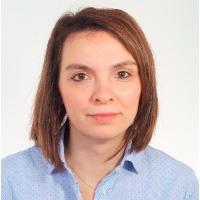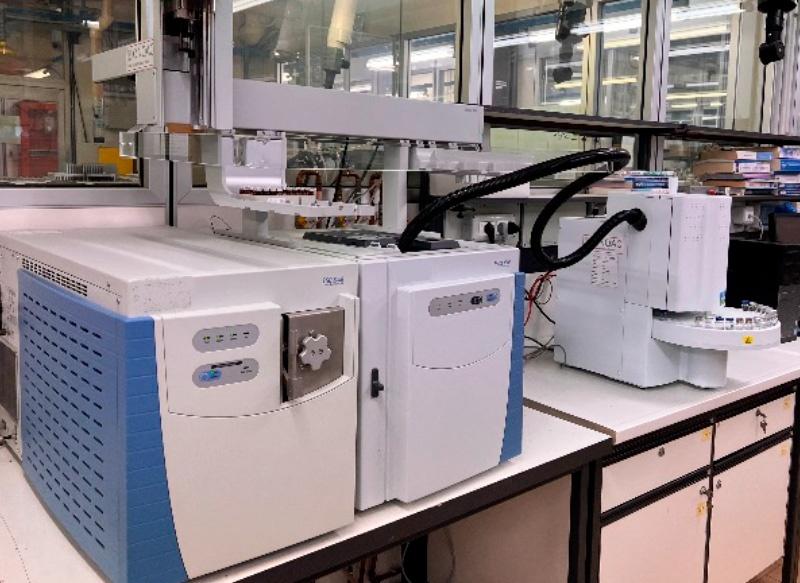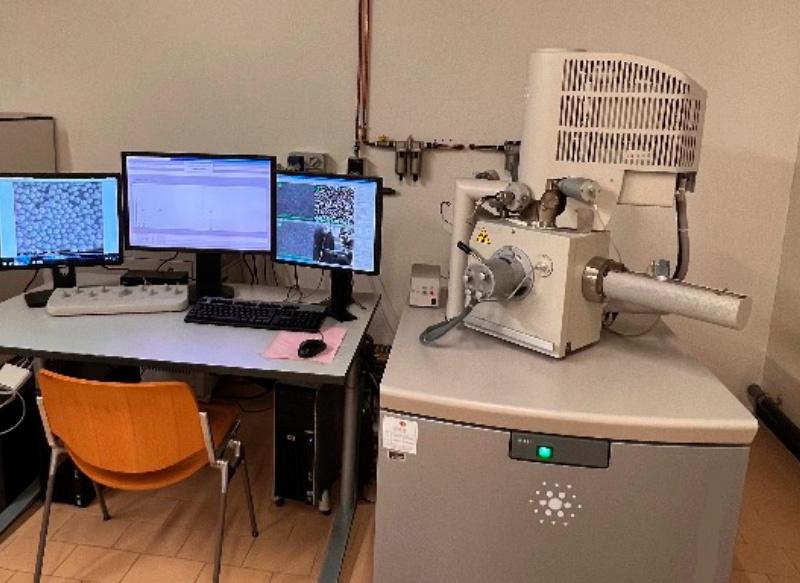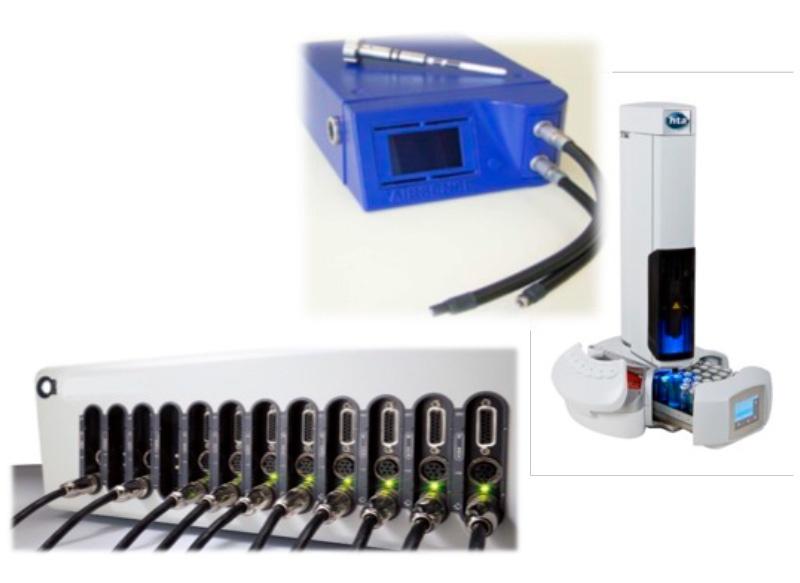Strengthening of the Italian Research Infrastructure for Metrology and Open Access Data in support to the Agrifood
UNIPR1 – Analytical Smart Sensor Unit
(Reference person: Maria Careri)
The Analytical Smart Sensor Unit within the Department of Chemistry, Life Sciences and Environmental Sustainability has extensive experience with national and EU projects also in the framework of EURAMET association as well as long expertise in the organization in national and international scientific events. As a partner of the EU infrastructure METROFOOD-RI the group has a specific role in the management of analytical laboratories. Over the years, the group has provided educational services by organizing postgraduate courses devoted to laboratory quality management system in compliance with ISO/IEC 17025 and to traceability of results in food measurements. The Analytical Chemistry research group has an outstanding expertise in the use of different instrumental platforms and in the field of metrology within the themes devoted to food safety, quality and authenticity assessment. The most important topics rely on the development of: i) electrochemical smart biosensors based on the functionalization of disposable electrodes with nanostructured materials using biological or biomimetic receptors for rapid and sensitive determination of allergens and contaminants in close sinergy with the Computer Science and Electronic Sensor Unit regarding portable IoT smart biosensors; ii) methods based on the use of gas chromatography- and liquid chromatography-high resolution mass spectrometry for targeted and untargeted analysis; iii) novel materials for miniaturized extraction techniques; iv) methods based on environmental scanning electron microscopy with Energy Dispersive X-Ray Analysis for the characterization of nano- and- micro-scale materials and for the determination of nanoparticles in food. Furthermore, the Unit has a solid experience in the use of experimental design techniques for method optimization and analytical robustness assessment, and of multivariate statistical analysis techniques for data processing.

Maria Careri
Is Full Professor of Analytical Chemistry at University of Parma since 2001. Chair elected of the Executive Board of the Division of Analytical Chemistry of the Italian Chemical Society (2007-2009). Director of the National School "Analytical and Bioanalytical Methods based on Mass Spectrometry", organized by the Division of Analytical Chemistry and the Division of Mass Spectrometry of the Italian Chemical Society (2005-2014). Director of the International Course METROFOOD-RI: Traceability and comparability of results in food measurements, organized by the School of Advances Studies on Food and Nutrition, University of Parma. Member of the International Advisory Board of Analytical and Bioanalytical Chemistry (Springer). Responsible for the University of Parma of Italian and European research projects, among which a EURAMET project on Metrology (Call 2021), H2020 METROFOOD-PP, NPRR METROFOOD-IT, NPRR ONFOODS. (H-index 45, 224 publications, 7710 citations, 2 patents, Scopus: 21.11.2022).

Alessandro Bertucci
Is since 2020 an Assistant Professor at the Department of Chemistry, Life Sciences and Environmental Sustainability, University of Parma. After earning his Ph.D. in Chemical Sciences jointly from the University of Strasbourg and the University of Parma, he worked as an Endeavour Fellow at The University of Melbourne, Australia, as a Marie Skłodowska-Curie Global Fellow at the University of California San Diego, USA and as a Fondazione Umberto Veronesi Fellow at the University of Rome Tor Vergata. His research interests lie in biosensor design, DNA nanotechnology, bioanalytical chemistry and nanomedicine. In 2021, he received the Galileo Galilei Prize for Young Scholars and the Primo Levi Award Silver Medal from the Italian Chemical Society. He has published 25 papers in peer-reviewed journals with more than 1000 citations and is co-inventor of an international patent.

Federica Bianchi
Has a PhD in Chemical Sciences in 2002, Chemistry degree at the University of Parma in 1999. She is Associate Professor of Analytical Chemistry at the University of Parma. She is Delegate of the Director for job placement and Deputy President of the Council of Courses in Chemistry. Since 2014 she is Director of the Postgraduate University Course Quality Control and Quality Management System in Testing Labs. The research activity covers a wide range of areas including analytical separations-based research, innovation in materials for sample treatment devices and mass-spectrometry instrumentation. Expertise in chemometrics, metrology and quality assurance involving method optimization and validation and data handling is widely exploited to support all research directions where measurements are involved. (H-index 32, 99 publications, 3131 citations, 2 patents, Scopus: 15.11.2022).

Davide Errico
Graduated in Chemistry and Pharmaceutical Technologies at the University of Parma in 2016 with a thesis in analytical chemistry, he obtained the qualification to practice the profession of Pharmacist and Chemist in 2017. He worked in a toxicology laboratory until 2018 and from 2019 of CQ-Lab Supervisor in a pharmaceutical company, managing a complex quality control laboratory for raw materials and finished products. Since January 2023 he has been EP Technician of the Department of Chemical, Life and Environmental Sustainability Sciences of the University of Parma for the implementation of the PNRR METROFOOD-IT project with the role of coordinating the activities of analytical laboratories with chromatography and spectrometry instrumentation of mass for the development and validation of methods to support the design of smart multi-sensor platforms for food safety and quality.

Marco Giannetto
Was born in Messina, Italy, in 1973. He received the degree in chemistry and the Ph.D. degree from Parma University, in 1996 and 2000, respectively. He is currently Associate Professor of Analytical Chemistry at University of Parma, where he teaches analytical chemistry and ‘‘sensors and screening techniques’’ for the bachelor’s and master’s degrees in chemistry. He is currently the coordinator of the Interdivisional Group "Sensors" of the Italian Chemical Society, having been elected for the three-year period 2022-2025. His current research interests include the design, realization, characterization, and validation of new chemical sensors and biosensors based on different transduction mechanisms with applications in clinical diagnosis and point-of care, food safety/quality control, and environmental monitoring. He has authored or coauthored 64 articles in these areas.

Monica Mattarozzi
Received her PhD in Chemical Sciences in 2011. She is an Associate Professor of Analytical Chemistry at the Department of Chemistry, Life Sciences and Environmental Sustainability of the University of Parma. She is board member of the Interdepartmental Center for Safety, Technologies and Innovation in Agrifood (SITEIA.PARMA) of the University of Parma. Her research interests mainly focus on the development and validation of innovative analytical methods based on chromatography, mass spectrometry techniques, including ambient-MS, and biosensing devices. Research activities include also the use of environmental scanning electron microscopy applied to the characterization of materials and tissues, and to environmental, biological, and food samples for analytical purposes. She has 60 publications, 1387 citations and H-index 23 (Scopus, 18.11.2022).








